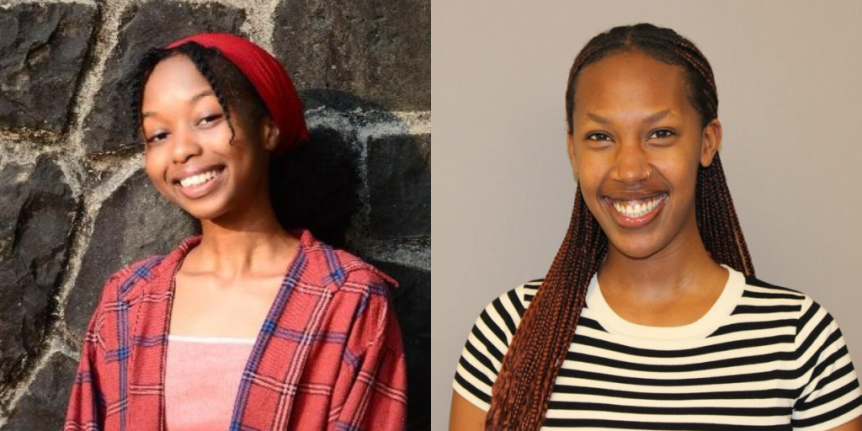Two Macalester Students Awarded Project for Peace Grants

This article was originally published by Macalester College.
Macalester students Raouda Mamane Bello Boubacar Kinassa ’28 and Kampe Ishimwe Rushoka ’26 have been awarded $10,000 Davis Projects for Peace grants to launch summer projects aimed at fostering peace and strengthening communities. Kinassa and Rushoka are among 125 students globally chosen for the 2025 cohort.
Both students will travel to their home countries this summer to lead community-based programs centered around youth engagement and education.
Kinassa’s project, a month-long educational program designed to empower youth through leadership training and personal development, will take place in a boarding school in Niger. The initiative will bring together 20 young people from across the country for a series of workshops, discussions, and community activities focused on four pillars: leadership, entrepreneurship, mental health, and civic engagement.
“Education is not just about getting ahead. It’s about giving back,” Kinassa said. “Young people are the leaders of tomorrow, and we need to invest in our youth if we want to build a better future.”
Each week of the program will focus on one of the four pillars, with sessions led by guest speakers, community leaders, and mental health professionals. In the evenings, participants will engage in group activities designed to build trust and camaraderie, while weekends will be spent engaging directly with local communities through service projects.
Kinassa emphasized the importance of creating safe, supportive spaces where students feel valued. “I know people talk about changing the world, but you cannot change the world if you cannot change yourself first,” she said. “I want them to understand that they matter.”
Rushoka’s project will focus on intergenerational storytelling and civic education in Rwanda, exploring the lingering effects of the 1994 genocide and the silence that often surrounds it. Her goal is to help young Rwandans gain a nuanced understanding of their nation’s past, while fostering open dialogue and active citizenship.
“I believe peace is an intergenerational process,” Rushoka said. “We have a responsibility not only to educate ourselves but to be active partners and stakeholders in the peace-making process.”
Rushoka’s project is in collaboration with iDebate Rwanda, an organization that encourages youth to explore the power of free expression through debate. Over the course of the month, high school students will work in teams to identify a community-based issue and develop an actionable solution. By combining storytelling, critical thinking, and historical education, Rushoka hopes to equip her generation with the tools to build a more inclusive and informed future.
“When things are explained in a simplistic way, it’s very easy to draw them as a black-and-white picture,” she said. “I hope this project gives us nuance that allows us to both appreciate what was accomplished and understand what still needs to be done.”

